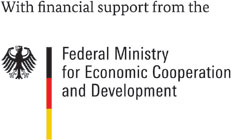Decades after the Soviet Union's collapse, history education in Armenia, Georgia, Moldova, and Ukraine struggles with lingering propaganda, according to a recent study conducted by the "Critical Toolkit for History Teaching" project, implemented by EUSTORY (European History Educators Network) and DVV International (the Institute for International Cooperation of the Deutscher Volkshochschul-Verband e.V., the German Adult Education Association), with the support of the German Federal Foreign Office.
During 2023, the project team researched national curricula of school history education and interviewed teachers and education sector officials. Led by Mire Mladenovski, a prominent educator and former president of EUROCLIO, the international team compiled a comparative report on history-based propaganda in schools, which has been published at the end of February.
The report singles out the following challenges in school history education in Armenia, Georgia, Moldova, and Ukraine: Ethnocentric narratives and biased language in textbooks; teachers' lack of tools to address propaganda; and Soviet-style teaching methods hindering critical thinking.
To address the challenges, the project team, local NGOs, and prominent historians began their work on a toolkit for history educators. This toolkit will equip educators to identify and address history-based propaganda.
Tailoring culturally relevant toolkit variations for each country, the project team seeks to promote diverse perspectives on historical events to counter one-sided narratives of textbooks, encourage student-centered learning for critical thinking, and facilitate regional collaboration among educators.
"The weaponization of history threatens our societies, as our research clearly shows," says Dr. Andriy Fert, the project coordinator. "So we intend to create a toolkit that will empower teachers and students to transform history education from a weapon into a tool for critical thinking development."
The "Critical Toolkit for History Teaching" project, which was launched in summer 2023, is a cooperation between DVV International, Körber-Stiftung and various partner organisations. The cooperation started back in 2017 and is now in its 4th round. After focusing on initiating and strengthening national history competitions for students, the project now puts a stronger focus on teacher training.
More information
Download of the study on the EUSTORY website.


![[Translate to English:] [Translate to English:]](/fileadmin/_processed_/7/4/csm_Tutors_training_history_toolkit_project_ff0f7b6165.jpg)




